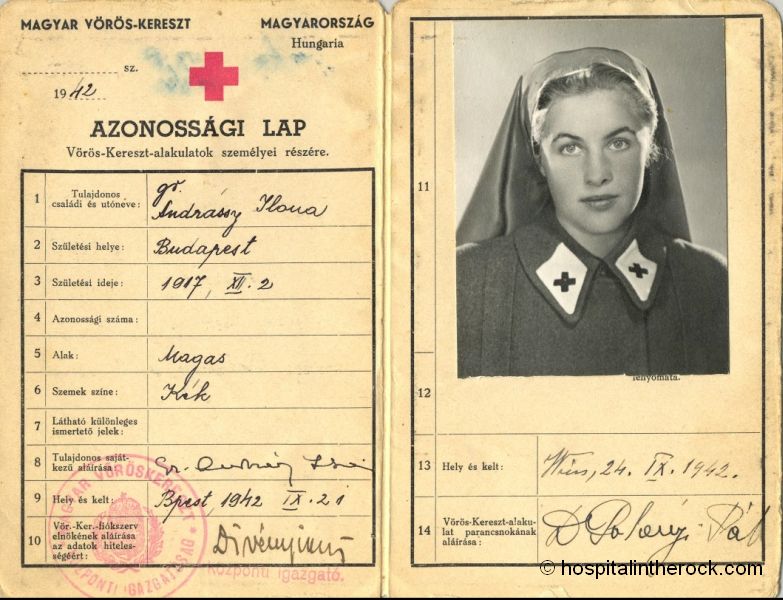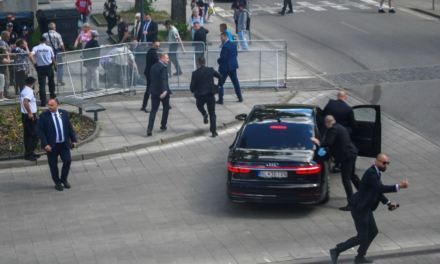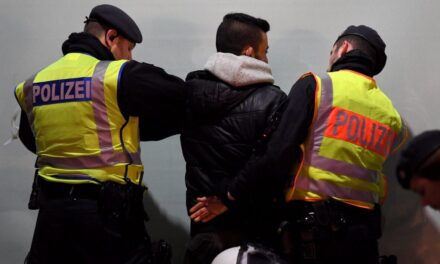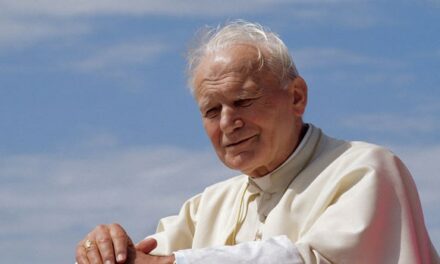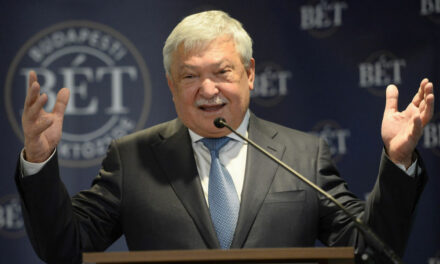At a ceremony held in the Presidential Palace in Warsaw, the award was received from Wojciech Kolarski, the State Secretary of the Office of the Head of State, on behalf of the countess' niece, Erzsébet Mayr-Melnhof, historian Kristóf Erdős, an employee of the National Remembrance Committee. They also honored several Ukrainian citizens who saved Poland.
The event, held with the participation of the Hungarian ambassador in Warsaw Orsolya Zsuzsanna Kovács, was opened by a performance of György Ligeti's Solo Sonata for Cello.
Kolarski read a letter from Andrzej Duda, in which the president praised the courage of those who during the Second World War lent a hand to the suffering and needy members of other nations, whom they considered primarily their fellow human beings. Count Csíkszentmihályi and Ilona Andrássy from Krasznahorka were like that, who together with other Hungarian aristocrats helped the refugees - recalled Duda, and then listed the names of the other recipients.
The Virtus et Fraternitas medal is awarded by the Polish President at the initiative of the Witold Pilecki Institute in Warsaw, which deals with the research of totalitarian systems.
Magdalena Gawin, the director of the institute, highlighted in her speech: Ilona Andrássy was a co-founder of the Hungarian-Polish Asylum Committee, she had enormous merit in supporting Polish refugees from the Second World War. The countess's role in the committee was also referred to in the video film shown at the award ceremony.
The committee section managed by Ilona Andrássy provided accommodation for around 10,000 Polish refugees until the end of 1939. The countess brought clothes, food, and money to the soldiers sent to the internment camps, and also helped them in their secret escape to Yugoslavia. In 1940-1941, around 45,000 Poles left Hungary on this route, primarily soldiers
they recalled.
They also referred to the countess's child rescue activities, which began in 1944, during which she dealt with Jewish orphans under the protection of the International Red Cross. They recalled his exile in Hortobágy after the war, as well as the fact that he was sentenced to four years in prison in 1961 on charges of illegal activities.
It was mentioned that Ilona Andrássy's mother was Maria Choloniewska, a countess of Polish origin.
Kristóf Erdős read Erzsébet Mayr-Melnhof's letter, recalling: during the forced labor in Hortobágy, the countess performed her duties as a calf breeder so conscientiously and aroused such sympathy in other people that after her sentence was over, they asked her to continue working on the farm. " I always wondered where my aunt got her strength for her struggles. The reason for this was his deep faith in God, " wrote Mayr-Melnhof.
The Virtus et Fraternitas awards, awarded for "heroic behavior" and "exceptional courage in the defense of human dignity" to foreigners who helped Poles during the 20th century, were presented for the fourth time.
The recognition has already been awarded to several Hungarians, for example, this June four other members of the Hungarian-Polish Asylum Committee, Margit Józsefné Margit, Erzsébet Szapáry, Antal Szapáry and Edit Weiss were honored. The namesake of the Warsaw institute, Witold Pilecki, in September 1940, as a soldier of the Home Army, locked himself up in the Nazi death camp in Auschwitz by his own decision in order to organize the resistance there. After his daring escape, he reported on the Nazi crimes, but the Western allies did not believe his report. He also organized the resistance during communism, and was executed by the Polish state security agency in 1948.
MTI
Photo: hospitalintherock.com

